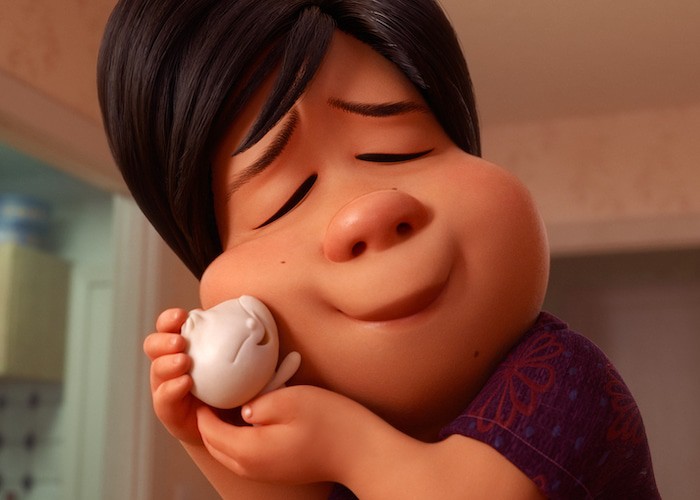
In Bao, the Pixar short made to accompany the long-awaited Incredibles 2, a lonely mother struggling with her empty nest is amazed when one of her dumplings comes to life. In time, her somewhat unconventional offspring ages and seeks independence, as children are wont to do. One day, her unusually doughy son tells her he intends to move out, sending our protagonist into a panic. When she fails to convince him to stay, she swallows him whole before he can walk out the door.
Cue a theater full of shocked looks, nervous laughter, and more than one audible “What?!”
Logically, such an incident seems strange and unnatural. But in reality, it’s actually quite natural—though admittedly, still strange.
Young children everywhere (and, in many cases, their parents) can speak to the emotional scars of seeing a beloved pet hamster kill, and in many cases consume, her babies.
In 2014, a sloth bear at the Smithsonian National Zoo made it into the news after she ate two of her three newborn children. (The keepers intervened to save the third, who was then reared separately).
It’s a phenomenon widespread throughout the animal kingdom. Verified accounts of various species of cat, dog, numerous rodents, and even primates killing—and yes, in some cases eating—their own young have been recorded.
While originally biologists pathologized the behavior, infanticide is now often regarded as being a normal element of numerous species’ reproductive strategies, at least under specific conditions—that is, under extreme environmental stress, such as a shortage of food.
Basically, the theory goes that animal reproductive behavior evolves to maximize an individual’s lifetime reproductive output. For animals that can have multiple offspring over the course of a lifetime, that means that the cost of investment in any particular offspring is weighed against the potential benefit of reserving that energy for future offspring.
As such, under conditions of environmental stress—specifically, a situation where a parent (usually the mother, as mothers generally tend to invest more energy into offspring rearing) does not have the resources to successfully raise her offspring to adulthood—it can sometimes be more advantageous to kill these offspring and save time and energy rather than continuing to care for them when they would likely not survive anyway.
Does this seem terribly selfish? Yes, but the basic gist of animal behavior, on the whole, is that every behavior, even the most self-sacrificing, altruistic acts, can be understood as being selfish from the right angle. And then again, from a certain perspective it could be claimed that in some of these situations, such as insufficient food availability, the quicker, earlier death is also the kinder option from the offspring’s perspective vis-à-vis a “mercy killing” argument. But your mileage may vary on that one.
Regardless, back to movies. Let’s consider a handful of films besides Bao featuring mothers or maternal-type figures killing a beloved offspring.
There’s The Others, in which Grace Stewart (Nicole Kidman), a mother living alone in an isolated mansion with the stress of watching over her two dangerously photosensitive children while her husband battles on the WWII frontlines, ends up smothering her children with their pillows in a nervous breakdown.
There’s The Orphanage, in which Laura (Belén Rueda), growing increasingly convinced that her house (and son) might be haunted, accidentally traps her son in the walls while searching for him, leading to his death.
There’s The Innocents, in which governess and stand-in mom Miss Giddens (Deborah Kerr) attempts to save her charges from the malevolent spirits she thinks are possessing them, only for her male ward to end up dead for her efforts.
In all three cases, the mother/mother figure’s anxiety ends up contributing to her children’s deaths. Yes, their fears might be about things like ghosts instead of food shortages, but ultimately, the brain doesn’t process emotions differently according to a source, so long as the end result is the same. Emotionally, stress is stress is stress, and it will shorten your telomeres faster regardless.
People are, of course, not hamsters or sloth bears. But perhaps there’s a case to be made that this formula of mother + extreme emotional stress = dead kid might be one of those Freudian deals—a weird undercurrent from the subconscious that the rational, conscious mind wholeheartedly rejects, but that still manages to bubble up here and there in roundabout ways, like in dreams (here’s looking at you, Bao) or as a recurring cinematic trope.
So, in sum: mothers killing and/or eating children. Strange? Yes. Disturbing? Absolutely. Unnatural?
Not exactly.
Related Topics: Animation, Parenting, Pixar

